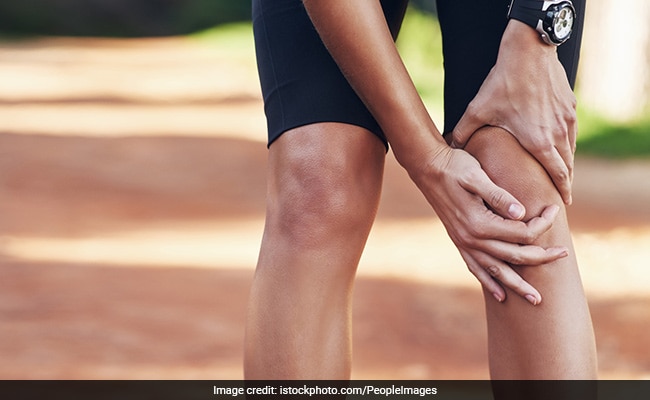Here's all you need to know about runner's knee and what can heighten or lower the risk of the same.

All you need to know about runner's knee
HIGHLIGHTS
- The main cause of runner's knee is heavy stress on your knees
- Tightness and weakness in the thigh muscles can also lead to injury
- Most of the time, runners knee goes away on its own
It is a moment every runner dreads- you're warming up for a run, and all of a sudden, you feel a dull ache in your knee. Patellofemoral pain syndrome (PFPS), or runner's knee, got its nickname for an obvious and very unfortunate reason-it's common among runners. This is because the stress of running can cause irritation where the kneecap rests on the thighbone. So, it is important to educate yourself about it and know what can heighten or reduce your risk.
Also read: Leg Cramp? Here's What You Can Do About It
Here are the top seven things to know about a runner's knee:
1. The main cause of it is heavy stress on your knees. This puts you at risk for developing it.
2. Runners who are born with flat feet and those whose kneecaps may be out of alignment are more susceptible to runner's knee. Tightness, imbalance, and weakness in the thigh muscles can also lead to the injury.
3. You may be confused sometimes when it comes to experiencing symptoms. You may also attribute these symptoms to something else. The distinguishing symptoms of runner's knee include swelling, pain under or around the front of the kneecap, pain when kneeling or squatting and pain that occurs when walking up or downstairs.
4. Most of the time, runner's knee goes away on its own. With proper rest, icing, compression and elevation, you should be able to resume running rather quickly.
5. It is very rare that runner's knee would require any surgery. Surgical options are available, but most cases are successfully treated without invasive procedures.
6. To reduce your risk, remember to stretch before a run, increase your training gradually, get proper gear, and practice proper form. If you can, run on level ground to lessen the torque on your knees.
7. Genetics are also a potential risk factor for runner's knee.
DoctorNDTV is the one stop site for all your health needs providing the most credible health information, health news and tips with expert advice on healthy living, diet plans, informative videos etc. You can get the most relevant and accurate info you need about health problems like diabetes, cancer, pregnancy, HIV and AIDS, weight loss and many other lifestyle diseases. We have a panel of over 350 experts who help us develop content by giving their valuable inputs and bringing to us the latest in the world of healthcare.











